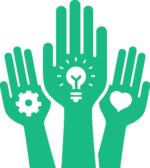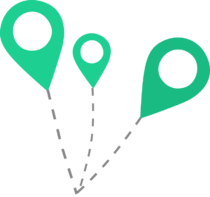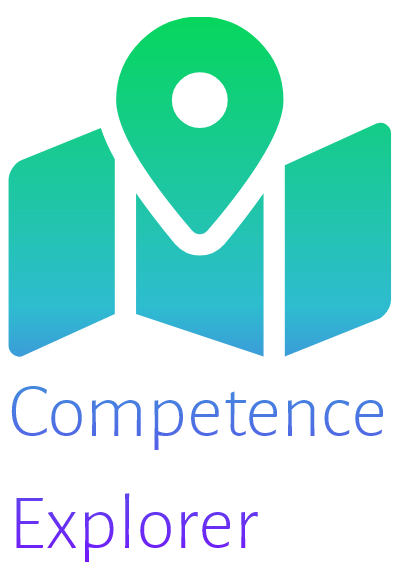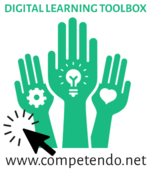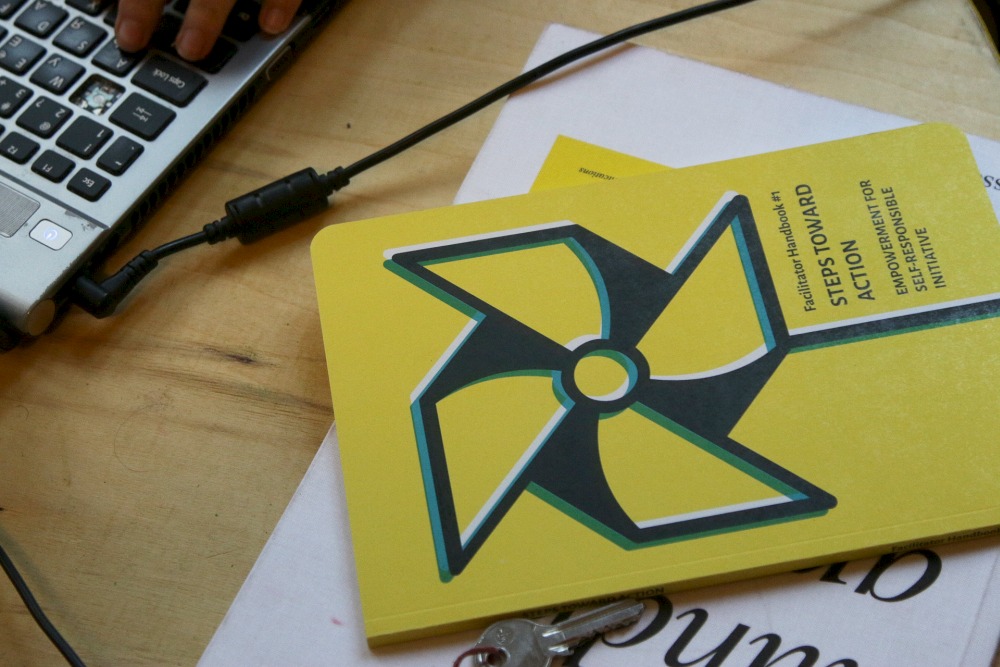|
|
| (249 intermediate revisions by 4 users not shown) |
| Line 1: |
Line 1: |
| − | <div class="left-column-contentinner"> | + | __NOTOC__ |
| − | [[File:Understanding.png | right | 200px]]<div class="teaser-text">Competendo’s main focus is to shape and strengthen ''key competencies'' of individuals and to support an applied learning outcome in their life as active citizens and changemakers. We promote a learned outcome wider than knowledge, including the practical skills of learners and their attitudes. We hope that these competencies will help people be better prepared to thrive in complex social situations. | + | <div class="methodpage-content"> |
| | + | <div class="teaser-text">[[File:Understanding.png | right | 200px | link=https://competendo.net/en/Understanding]]Competendo is supporting a holistic view on education and learning. A perspective which is giving equal importance to knowledge, practical skills, attitudes and values. Competence-centered facilitation acknowledges that these all play together. Competences help people to integrate what they’ve learned into their lives in complex situations, as active citizens, or use these competences in a context of societal transformation like in the digitalisation or climate crisis. Education that supports agency, autonomy, democratic resilience and change. |
| | </div> | | </div> |
| | + | <div style="float: right; font-size: 150px;color: #1abb83; font-weight:bold;">?</div> |
| | + | ==Democracy- and Human Rights-Related Learning == |
| | + | Education for Democratic Citzenship aims to foster initiative, an active role of an individual in public life (participation). This includes a systematic understanding of how one's individual engagement is connected to the society, the political system, or to complex social challenges. It helps citizens/learners to develop a democratic attitude toward other people and groups and contribute to a peaceful democratic culture. It is necessary to understand and co-create social transitions. |
| | | | |
| − | <br>
| + | This toolbox aims to show how democracy-related educational approaches contribute to modern competence-oriented pedagogy and how modern competence orientation improves democracy-related pedagogy. |
| − | <hr style="border: 1px solid #d21e3d; width: 90%;">
| |
| − | ==Key Competences and Learning==
| |
| − | <div class="teaser-box">
| |
| − | ===[[Competencies]]===
| |
| − | [[File:Understanding.png | 150px | left]]Competence-centred learning processes cover a broad range of skills, knowledge, and attitudes that one needs for successful problem-solving techniques in modern society. They help the individual to develop their key competencies and have an active attitude towards the idea of life-long learning.
| |
| − | </div>
| |
| | | | |
| − | <div class="teaser-box"> | + | <div class=left-box> |
| − | | + | ====Glossaries==== |
| − | ===[[Experiential Learning]]=== | + | <i class="fas fa-book" style="font-size: 54px; color: #ccc; float:right;"></i> |
| − | [[File:Understanding.png | 150px | left]]Experiential learning is a holistic process of individual development that brings relevance to the knowledge, skills, and attitudes of the participants. It combines the learning opportunities of everyday life and scholastic institutions with all other possible activities that are available in society.
| + | <noinclude>{{:Glossaries}}</noinclude> |
| | </div> | | </div> |
| | | | |
| − | <br>
| + | <!-- |
| − | <hr style="border: 1px solid #d21e3d; width: 90%;"> | + | <categorytree mode=pages>Understanding</categorytree> |
| | + | --> |
| | | | |
| − | ==Empowerment== | + | <hr class=boldline> |
| | | | |
| − | <div class="teaser-box"> | + | ==Articles:== |
| − | ===[[Empowerment]]=== | + | <div class="teaser-box" style="background: linear-gradient(to bottom, white, #DEFCEE);"> |
| − | [[File:Empowerment.png | 150px | left]]Empowerment is the learning and developmental process of raising social, spiritual, economic, and political capacities of individuals or communities. We promote it as a tool to help each individual to act self-responsibly and with a sense of purpose. We hope to equip individuals with skills, knowledge, and competencies that will promote empathy and a desire to share their influence and power as self-responsible individuals.</div> | + | ===[[What Competency-based learning is... | Section: Compe­tence Focus]]=== |
| | + | [[File:Competences1.png | 150 px |right | link=What Competency-based learning is... ]] |
| | | | |
| | + | The section includes: |
| | + | * Competence-based learning, |
| | + | * Aspects of experiential learning, |
| | + | * Power and participation, |
| | + | * Motivation and inspiration. |
| | + | </div> |
| | | | |
| − | <br>
| + | <div class="teaser-box" style="background: linear-gradient(to bottom, white, #DEFCEE);"> |
| − | <hr style="border: 1px solid #d21e3d; width: 90%;">
| |
| − | | |
| − | ==Group-related and Interpersonal Aspects ==
| |
| − | <div class="teaser-box"> | |
| − | ===[[Group-related and Interpersonal Aspects]]=== | |
| − | [[File:Understanding-groups.png | left | 150px]]Following the idea of competence-based learning and empowerment, we need to reflect and improve upon the learning conditions in our classrooms, seminars, and workplaces. Since social life is shaped through group and intergroup collaboration, we need to transform our social groups into collectives which encourage peer-involvement-style learning in order to create a new understanding of the role of teachers or trainers as ''facilitators''. </div>
| |
| | | | |
| − | <div class="teaser-box">
| + | ===[[Digital@Learning | Section: Digital@Learning]]=== |
| − | | + | [[File:Ballons.png | 210px | right | link=Digital@Learning]] |
| − | ===[[Teamwork and Group Dynamics]]=== | |
| − | [[File:Group.png | 180px | left]] Personal cooperation is a valuable management tool and can be a learning opportunity for enhancing social skills. The more diverse groups are, the more they need to reflect and to apply cooperative ways of decision-making. These necessary reflections include a more detailed understanding of group processes and team roles. | |
| − | </div>
| |
| | | | |
| − | <div class="teaser-box">
| + | The section includes: |
| | + | * Digital in the Learning Process |
| | + | * Social, Political, Cultural Background about Digitalisation |
| | | | |
| − | ===[[Communication]]===
| |
| − | [[File:4seiten.jpeg | 200px |right]]Communication skills are extremely important in order for there to be an efficient common understanding and appreciation amongst partners in any group. This section introduces models that illustrate conditions for successful communication and offers methods for gaining communicative competency.
| |
| | </div> | | </div> |
| | | | |
| − | <div class="teaser-box"> | + | <div class="teaser-box" style="background: linear-gradient(to bottom, white, #DEFCEE);"> |
| − | | + | ===[[Group-related and Interpersonal Aspects | Section: Group and Inter­per­sonal Aspects]]=== |
| − | ===[[Diversity]]=== | + | [[File:Understanding-groups1.png | right | 150 px | link=Group-related and Interpersonal Aspects]] |
| − | We believe that developing diversity consciousness and managing diversity in groups will increase the quality of participation and include people from different social backgrounds in the collective process. This includes aspects that work against structural discrimination and marginalization, as well as to foster those who have not yet developed the capacity to get involved.
| |
| − | </div>
| |
| − | <div class="teaser-box">
| |
| | | | |
| − | ===[[Conflict Management]]===
| + | The section includes: |
| − | Good conflict resolution management influences the quality of collaboration and cooperation in the group in a positive way. With better conflict management we can improve the efficiency of communication and equip our participants with new skills.
| + | * Teamwork and Group Dynamics |
| | + | * Communication |
| | + | * Diversity |
| | + | * Conflict Management |
| | </div> | | </div> |
| | | | |
| − | <br>
| |
| − | <hr style="border: 1px solid #d21e3d; width: 90%;">
| |
| − |
| |
| − | ==Definitions & Terminology==
| |
| | | | |
| − | <div class="teaser-box">
| |
| | | | |
| − | ===[[Understanding: Sources & Glossary]]===
| |
| − | '''Introduction:''' On this page we collect links to external glossaries and sources.
| |
| − | </div>
| |
| | | | |
| | | | |
| Line 73: |
Line 62: |
| | | | |
| | </div> | | </div> |
| − | <div class="right-column-contentinner"> | + | <div class="methodpage-infos"> |
| − | ===Key Competences and Learning===
| + | <noinclude>{{:Navi: Understanding}}</noinclude> |
| − | * [[Competencies]]
| |
| − | *[[Experiential Learning]]
| |
| − | <hr style="border:0; border-bottom: 1px dashed #d21e3d; width: 100%;"> | |
| − | ===Empowerment===
| |
| − | * [[Empowerment]]
| |
| − | <hr style="border:0; border-bottom: 1px dashed #d21e3d; width: 100%;">
| |
| − | ===Group-related and Interpersonal Aspects===
| |
| − | *[[Teamwork and Group Dynamics]]
| |
| − | *[[Communication]]
| |
| − | *[[Diversity]]
| |
| − | * [[Conflict Management]]
| |
| − | <hr style="border:0; border-bottom: 1px dashed #d21e3d; width: 100%;"> | |
| − | | |
| − | ===Terminology===
| |
| − | *[[Understanding: Sources & Glossary]]
| |
| − | | |
| | | | |
| | + | <hr class=simpleline> |
| | + | <!-- |
| | + | ===Competence Navigator=== |
| | + | [[File: Competence-navigator-logo.png | link= Competence Navigator]] |
| | + | <hr class=simpleline> |
| | + | --> |
| | + | <noinclude>{{:Block: Handbooks}}</noinclude> |
| | | | |
| | | | |
| | </div> | | </div> |








